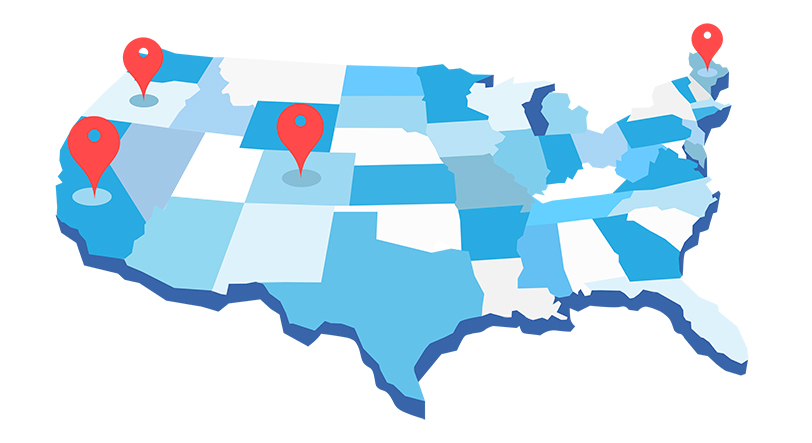States Begin EPR Needs Assessments

In the past three years, four states have passed separate packaging extended producer responsibility (EPR) laws that are now being implemented. Additionally, two state laws require initial EPR planning and performance of a needs assessment. Before the producer responsibility organization (PRO) can develop the producer responsibility plan, a statewide needs assessment must identify the investments and steps to achieve the legislation’s mandates. Like each state’s EPR programs, the needs assessments are structured differently with various requirements.
These four states could collaborate and share information to harmonize as much as possible. That possibility is stronger if the departments hire the same consultants to help facilitate and manage the workload. In the end, these assessments of state recycling systems will remain crucial in determining ultimately what the cost will be to producers.
Colorado
Colorado is the furthest along in the overall EPR implementation process, being the first state to have a PRO appointed, the Circular Action Alliance. The needs assessment was due to the state in January, while this issue of FlexPack VOICE® was in production. In Colorado, unlike other states, the PRO worked on the needs assessment directly rather than with state departments.
California
Before the PRO can work on the producer responsibility plan, CalRecycle must prepare an initial statewide needs assessment to identify the current infrastructure and c implement Senate Bill (SB) 54’s mandates, in collaboration with the PRO, local jurisdictions, the PRO Advisory Board, and others. The needs assessment will evaluate the design of materials covered by SB 54, source reduction of plastic, collection, recycling, composting, end markets, and consumer education. Information from this needs assessment will guide the PRO’s budget and plan, detailing how California will meet the SB 54’s packaging and plastic pollution reduction goals CalRecycle will develop this assessment in two parts and release it in late 2025.
Maine
Maine will contract directly with a “stewardship organization” to administer its EPR program. As part of the contract, the organization must provide a statewide recycling needs assessment that evaluates funding needs, collection and transportation, processing and markets, and consumer education. Organization selection is not expected until 2026, and the needs assessment might be performed at any point after that and will greatly impact the cost of infrastructure paid by producers of packaging.
Oregon
Oregon requires its state Department of Environmental Quality (DEQ) to conduct a needs assessment identifying local government interest in expanding collection. PROs must detail in their program plans how they will fund local governments to satisfy the elements identified in the assessment. The first edition was released in May 2023 and will guide PRO investments for 2025–2027. DEQ will provide periodic updates to the needs assessment going forward. Uniquely, DEQ also must conduct needs assess- ments relating to litter and multi-family housing.
Other Developments to Watch
In 2023, Maryland and Illinois passed laws that take initial steps toward EPR programs. The core of these laws is the needs assessment, as well. Maryland will complete its assessment in December 2024 and Illinois by December 2025.
Lauren Aguilar is a government affairs associate at the firm Serlin Haley, a lobbyist for FPA based in Washington, D.C. Andy Hackman also is a lobbyist with Serlin Haley.


